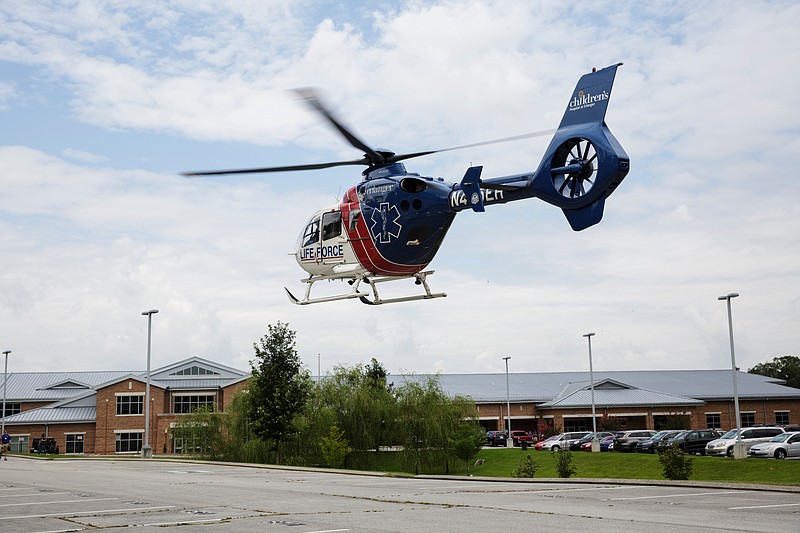It's true that we've never been here before as a nation, but that makes access to information more important rather than less.
The coronavirus has turned all of our worlds upside down, no less those of hospitals, which already deal with viruses, sickness and research into both every day.
But as this week has transpired, local hospital systems seem to have decided to keep more and more information to themselves. And it comes at the very moment when the virus is increasing in Chattanooga.
People are frightened, worried and don't believe they know enough about what to do and what not to do. They know they're supposed to stay home, keep their distance from anybody if they venture out, and wash their hands.
If something happens to them, whether it be virus-related, a foot sliced open on broken glass or a hip broken from a fall, they don't know if they are supposed to go to the hospital or not. Will there be beds? Will they be taking the place of someone much worse off? Will they become infected if they do go to the hospital?
We believe the majority of Chattanoogans don't know how to distinguish among a mild case of the coronavirus, a touch of the flu that was so bad the past winter or - cough, cough, sniff, sniff - the result of the pollen that is just now populating the atmosphere.
The upshot is that this is the occasion hospitals need to be most upfront with us.
Several incidents make us afraid that things are going the other way.
On Thursday, a combined letter to media from CHI Memorial, Erlanger Health System and Parkridge Health System said representatives of the three health systems "are unable to fulfill the majority of media requests" but in order to "assist with education for our communities" would "provide general information on coronavirus on our websites and social media accounts, in media releases and [public service] announcements, and through other previously arranged media and agency partnerships, such as the Hamilton County Health Department."
The letter went on to detail what the community already knows - that the hospitals are working as hard as they can, collaborating where they can, meeting a disease no one knows enough about it, and trying to slow its transmission both in the hospital and in the community. That much Chattanoogans have counted on and are thankful for.
Hospital officials later said that statement should not have been sent to media outlets because the media policy was still in draft form.
On Thursday night, the Erlanger board held its regularly scheduled monthly meeting via teleconference to prevent possible exposure to the virus. After approving a $50 million line of credit from First Horizon Bank, funds board members hope they won't have to access with the advent of tens of millions of dollars in federal and state aid that have been or will be approved, they moved to a closed session.
It's not unusual for the board to have a closed session, but at the end of it CEO Will Jackson and Chief of Staff James Bolton did not return to present their reports, which had been listed on the board agenda.
Board chairwoman Linda Moss Mines said the lack of transparency was a product of the uncertainty of the virus.
"The thing that's so difficult about all this is we don't know," she said after the meeting adjourned unexpectedly. "We know what we need. We know what we're hoping and praying for, and that's that we will not follow the curve that we've seen in other countries and states."
We don't believe the media is seeking any information it is not privileged to have. What we believe, instead, is that reporters want to fill in the blanks where information is lacking, to ask the questions readers and the public are asking, to ferret out trends, to provide the truth for readers, watchers and listeners - not just a version of the truth.
The hospitals, in their letter, acknowledge that protocols, plans and policies change day by day, even hour to hour, and state that those who report unauthorized or inaccurate information will cause more harm than good.
We agree. But if we don't know what changes are occurring and can't ask questions about them, the public will remain in the dark and will be even more confused about the pandemic than it already is.
We urge the hospitals to reconsider - that they will become more responsive when "we begin to see a changing curve in the number of pandemic cases and our resources become more flexible" - and consider at least offering some regular access to their experts about what is going on, how our health care systems are prepared, and how the public can help.
More transparency, rather than less, can only help keep us informed in a time when facts are so critical.
